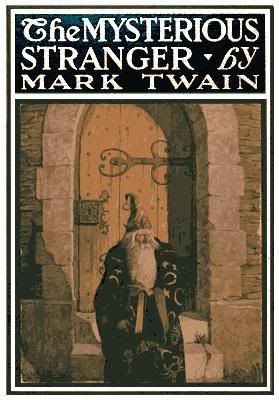|
Monday, March 24, 2008
No, the Other Satan
Title: "The Mysterious Stranger"
Author: Mark Twain

Will a day come when the race will detect the funniness of these juvenilities and laugh at them – and by laughing at them destroy them? For your race, in its poverty, has unquestionably one really effective weapon – laughter. Power, money, persuasion, supplication, persecution – these can lift at a colossal humbug – push it a little – weaken it a little, century by century; but only laughter can blow it to rags and atoms at a blast. Against the assault of laughter nothing can stand. You are always fussing and fighting with other weapons. Do you ever use that one? No; you leave it lying rusting. As a race, do you ever use it at all? No; you lack sense and the courage.
Twain’s “The Mysterious Stranger” is more short story/novella than novel, but still interesting enough to merit a full review. One day in a sleepy Austrian village, three boys meet and become smitten with a charismatic youth named Satan. Satan’s intoxicating powers mesmerize the boys. He can read their minds and vanish into thin air with no more than a ripple. Most impressive, he can create miniature human figures from clay; figures which proceed to build their own civilization and culture.
Satan, clearly, is no ordinary fellow. He is, in fact, an angel. He shares a name with an uncle who is rather more famous than he. Although with the way events unfold, you might not see much difference between the two.
Satan has nothing but scorn for humanity’s limitations. He exists on a higher plane, and lacks what he calls the “Moral Sense.” Satan therefore can massacre his miniature clay people as easily as he creates them, and feel no regret whatsoever when he hears their screams. Do humans feel regret when they swat a fly? That’s how much Satan cares.
It isn’t long before Satan’s presence in and around the Austrian village begins to affect its inhabitants. He grants the boys’ request to help some worthy individuals they know, although the ultimate results are naturally not what the boys initially wished for. Believe me, you don’t want Satan helping you. The world is so miserable and wretched and unjust, he reasons, that people would be better off dead or hopelessly insane. The darkness of the story comes in when the boys eventually come to agree with their divine friend’s assessment.
More likely to be found in a collection of Twain’s short stories than in a stand-alone volume, “The Mysterious Stranger” is a treat for the bitter little misanthrope in all of us. Save it for a rainy day when all you want to do is sit and rage about the petty inconsequentiality of the human race. Dark, dark, dark.
posted by Elizabeth at
7:19 PM

0 Comments:
|
|

